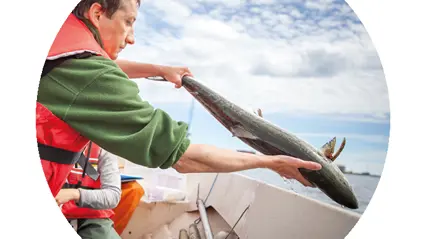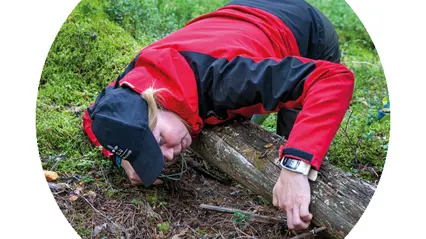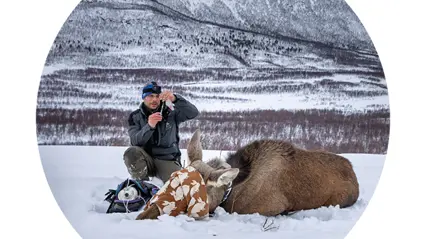
Aquatic Ecology
Overfishing, hydropower, eutrophication, new invasive species, environmental pollutants, and climate change are taking a toll on our wild fish populations. We work to create knowledge that contributes to solutions to these problems.

Molecular Ecology
We generate knowledge about wild populations, test ecological and evolutionary hypotheses, and support data-driven conservation and wildlife management. Our most important data is genetic information from individuals.

Restoration Ecology
We explore how nature restoration and conservation efforts affect species and their environments. We work closely with a range of stakeholders and have a strong international network of collaborators to ensure our findings are relevant and have impact.

Animal Ecology
We study the ecology of wild mammals and birds, including how they affect ecosystems and communities, and how they are managed. We work with stakeholders around the world for a sustainable future.
Research projects
-
Identifying and quantifying chemical threats to the species of “Darwin’s Dreamponds”
Lake Tanganyika is one of the world's most important freshwater sources, but it is seriously threatened by anthropogenic stress factors such as pollution. The project aims to provide some of the first information on organic chemical pollution in the southern part of the lake. -
Effects of ecological niche construction on life history and mating patterns
The idea that animals influence their environment in ways that can affect themselves and even influence their evolutionary selection pressure is summarised in the concept of ‘ecological niche construction’. The project utilises a unique natural experiment to measure the consequences of this. -
The structure of complex animal societies
Animals display a wide range of social phenotypes. Some animals are highly social and enjoy the company of others, while other animals prefer to remain solitary. Why is this? -
Threats to Arctic charr - species interactions and climate change
In this project, we investigate the critical factors that affect Arctic charr, using field sampling, historical data and population models. -
Lake food web responses to variation in land use practices across environmental gradients
This project will address how land-use change and forestry practises have altered, and may come to further alter, lake ecosystem diversity and function through inputs of dissolved organic matter (DOM) and nutrients along natural gradients in lake-biogeochemistry and catchment vegetation.